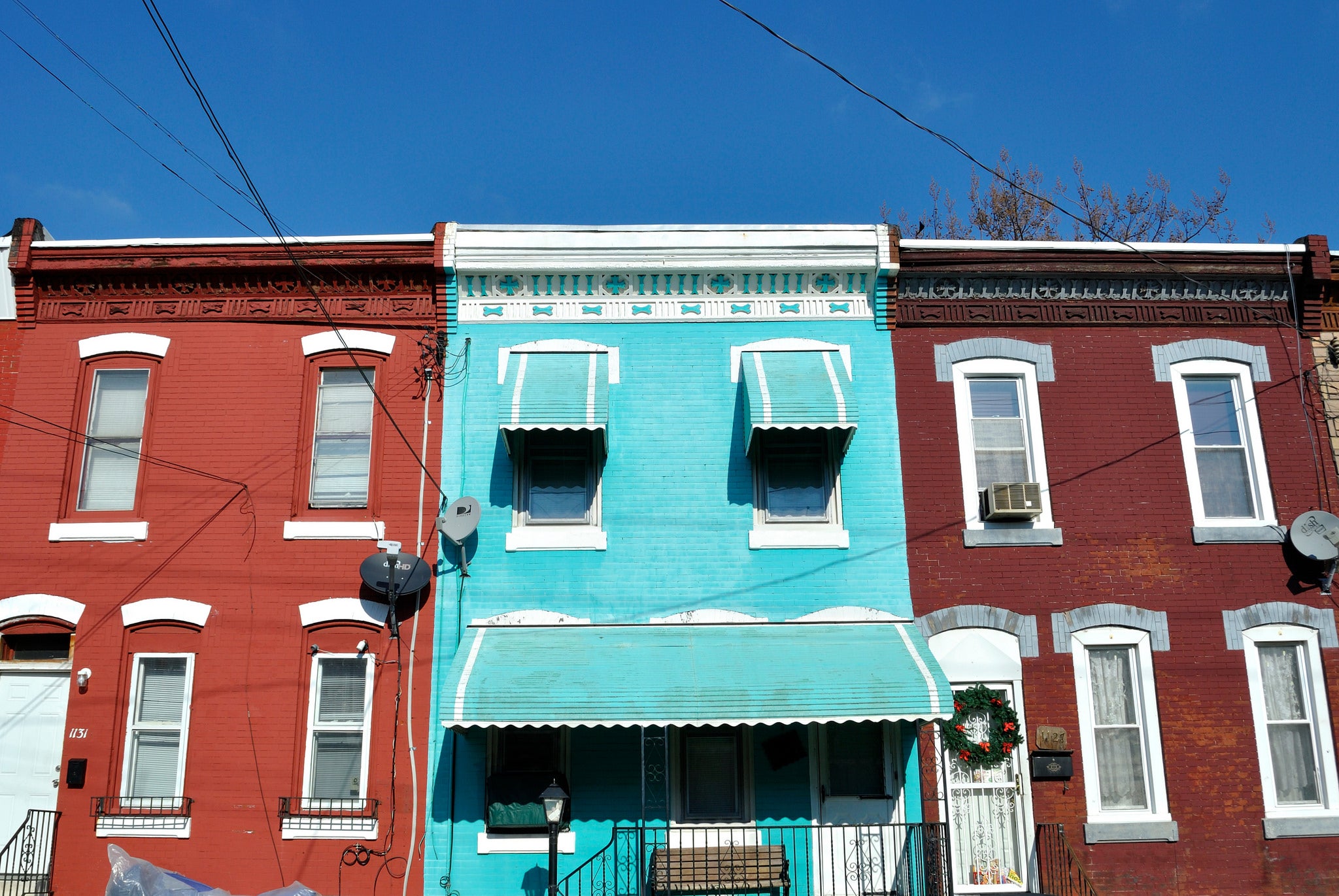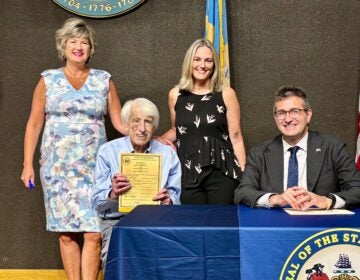Tax diversion bill would preserve homeownership and improve property-tax collection efforts

Community Legal Services says property-tax delinquency is the biggest reason people come to its office seeking assistance right now. But community contributors Catherine Martin and Jonathan Sgro, CLS attorneys who focus on homeowner rights, argue a proposed tax foreclosure diversion program could help preserve the city’s best source of affordable housing and support vulnerable communities.
In order to address a significant cause of homelessness in our city, Philadelphia City Council will soon vote on Council President Darrell Clarke’s Bill No. 170519 to create a Tax Foreclosure Diversion Program. The proposal aims to replicate the success of Philadelphia’s renowned Mortgage Foreclosure Diversion Program, which has saved more than 10,000 homes and has been a model for cities around the country. This is a unique opportunity for Philadelphia once again to be on the forefront of protecting Philadelphians from the loss of their most valuable asset — their homes.
The Tax Foreclosure Diversion Program will connect homeowners to trained housing counselors to help navigate repayment options and ensure that low-income families and seniors pay property taxes to the best of their abilities, while allowing them to remain in their homes. This will improve the City’s tax collection efforts that fund schools and vital City services that we all rely on.
Council President Clarke’s bill also expands the City’s tax deferral program and permits the poorest and most vulnerable homeowners to defer payment of property taxes until their homes are sold. Community Legal Services of Philadelphia (CLS) supports the creation of a Tax Foreclosure Diversion Program and expansion of the tax deferral program, and we look forward to working with the City on its implementation.
The number of tax foreclosures filed by the City has increased more than 1,200% in a mere seven years. Just last year, Clarke’s office says the City commenced more than 4,400 tax foreclosure actions against owner-occupied properties. As a result, the number of people seeking CLS’ help with property-tax delinquencies has spiked, and it is now the most common reason people come to our North Philadelphia office for legal assistance.
These numbers are striking on their own, and any city should see them and realize action is needed. However, given that Philadelphia has the highest rate of low-income homeownership of any major city in the country, our situation is even more urgent.
According to an analysis by Council President Clarke’s office, 35% of owner-occupied properties in Philadelphia have annual household incomes below $35,000 and roughly 19% survive on annual household incomes below $20,000. Nearly 40% of the families with income between $20,000 and $35,000 spend at least half of their household income on monthly ownership costs including property taxes and utilities. In light of persistent threats to federal funding for affordable housing, it is essential for Philadelphia to preserve its best source of affordable housing — existing family homes.
Five years ago, CLS started working with the Department of Revenue and other stakeholders to bolster the safety net for low-income homeowners with delinquent property taxes and to establish the Owner Occupied Payment Agreement (OOPA) program — a special type of payment agreement for homeowners to repay tax delinquencies with affordable monthly payments. Specially trained housing counselors or attorneys are often needed to help homeowners establish eligibility for this program because many homes in Philadelphia are multi-generational family properties with tangled titles. According to the Department of Revenue, approximately 10,400 homeowners were enrolled in OOPA agreements as of the end of 2015. Most of these enrolled homeowners have household incomes at or below 30% Area Median Income — roughly $2,000 for a family of four. Many of the enrollees are people with disabilities living on Social Security income of $735 per month, elderly long-term residents of our city, or working parents struggling to get by. These are people who are unlikely to be able to find rental housing they can afford and are at real risk for becoming homeless.
While the OOPA program has proved to be an important safeguard for low-income homeowners, many households simply cannot afford the required payments. Others are just barely getting by, but may be unable to afford future tax obligations.
Failure to make the OOPA payment each month or to pay new property taxes as they come due is grounds for default. Once defaulted, a homeowner has no right to a second chance and the City may to sell the property at a Sheriff’s Sale. This means thousands of low-income homeowners, even if currently enrolled in an OOPA, are at risk of losing their homes.
Take Rocco, a disabled crime victim with only $735 per month in Social Security Income. He has lived in his South Philadelphia home for his entire life, but he struggled to keep up with his taxes after his parents passed. When he realized his home was at risk, he did his best to enter into a payment agreement with the City for the tax delinquency. Unfortunately due to his disabilities, Rocco found it difficult to understand the documentation needed and was unable to enter into a payment agreement in time to prevent the sale of his property. Rocco’s home, assessed at more than $75,000, was sold to satisfy a debt to the City of less than $6,000. CLS is still working diligently to save Rocco’s home, and for the time being he is still living in it. If our efforts are unsuccessful, he will be forced into the City’s homeless shelter system, as Rocco has nowhere else to go. Should this occur, the City will incur costs of more than $14,000 annually to shelter him. This is far more than the money the City will recoup from having sold his home.
If the programs to be created by Council President Clarke’s bill were in force a year ago: Rocco would have been entitled to a meeting with a housing counselor who would have helped him enroll in an OOPA and prevent the sale of his home. Then if the OOPA payments or his future tax obligations were unaffordable on his meager income, he would have been able to request a deferral and satisfy the delinquency when he transfers the property in the future. As the numbers show, Rocco is not an isolated case and these tax foreclosures have broad effects on entire neighborhoods.
Of the more than 4,400 tax foreclosure actions the City filed last year against owner-occupied properties, 85% are located in low- to moderate- income communities of color. Because properties are often sold at Sheriff’s Sale for only a fraction of their assessed value, the City’s current tax foreclosure policy deprives low-income homeowners of significant equity and inhibits the transfer of intergenerational wealth. From 2000 to 2012, the number of cost-burdened households (i.e., households forced to spend more than 30% of their income on housing) in Philadelphia increased by 10% for renters and 8% for owners as rising real estate values makes more neighborhoods unaffordable for long-term residents. This unaffordability disproportionately displaces people of color, as minority populations in neighborhoods with rapidly rising real estate values have decreased by more than 20% during the same period while the white population has increased by a similar number. Clarke’s bill will not only utilize the City’s best source of affordable housing, but also provide community continuity.
Homeownership preservation stabilizes neighborhoods, prevents blight, and is the best affordable housing solution available to our City. In proposing Bill No. 170519, Council President Clarke has offered a compassionate and practical solution that balances the need to protect our most vulnerable homeowners with the need to collect revenue that Philadelphia depends on, ensuring a better city for all of us.
——-
Have bright ideas or insights to share from your corner of the city? You too can be a Community Contributor. Drop us a line at EOTS@planphilly.com with your ideas for commentary.
WHYY is your source for fact-based, in-depth journalism and information. As a nonprofit organization, we rely on financial support from readers like you. Please give today.





